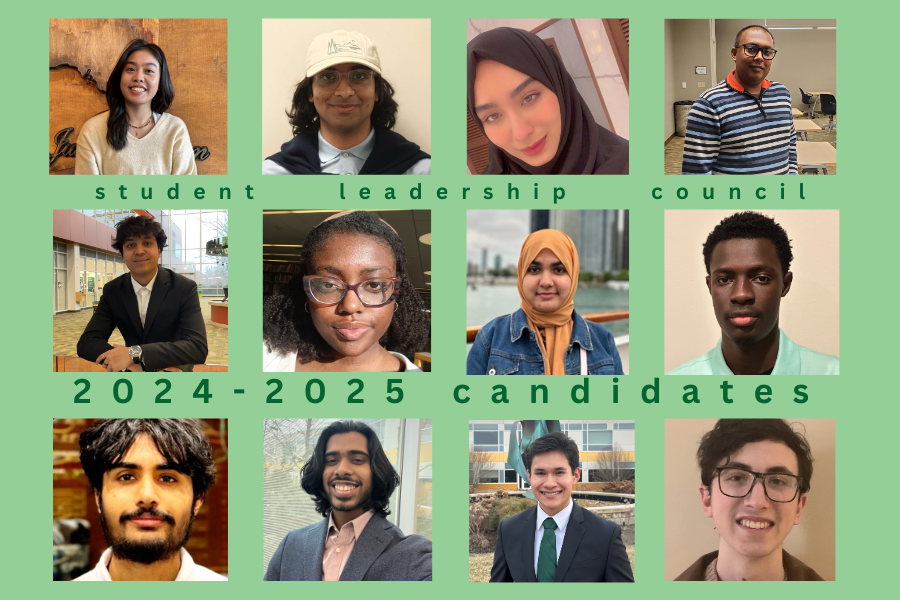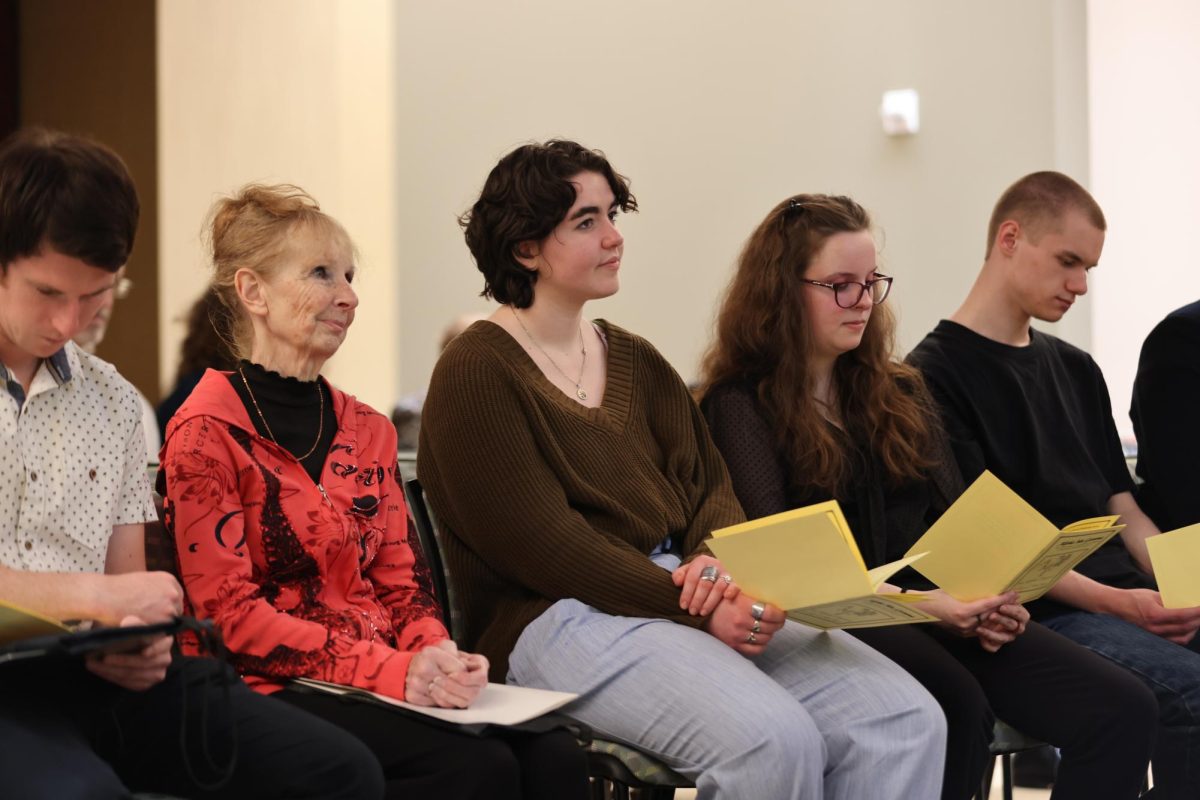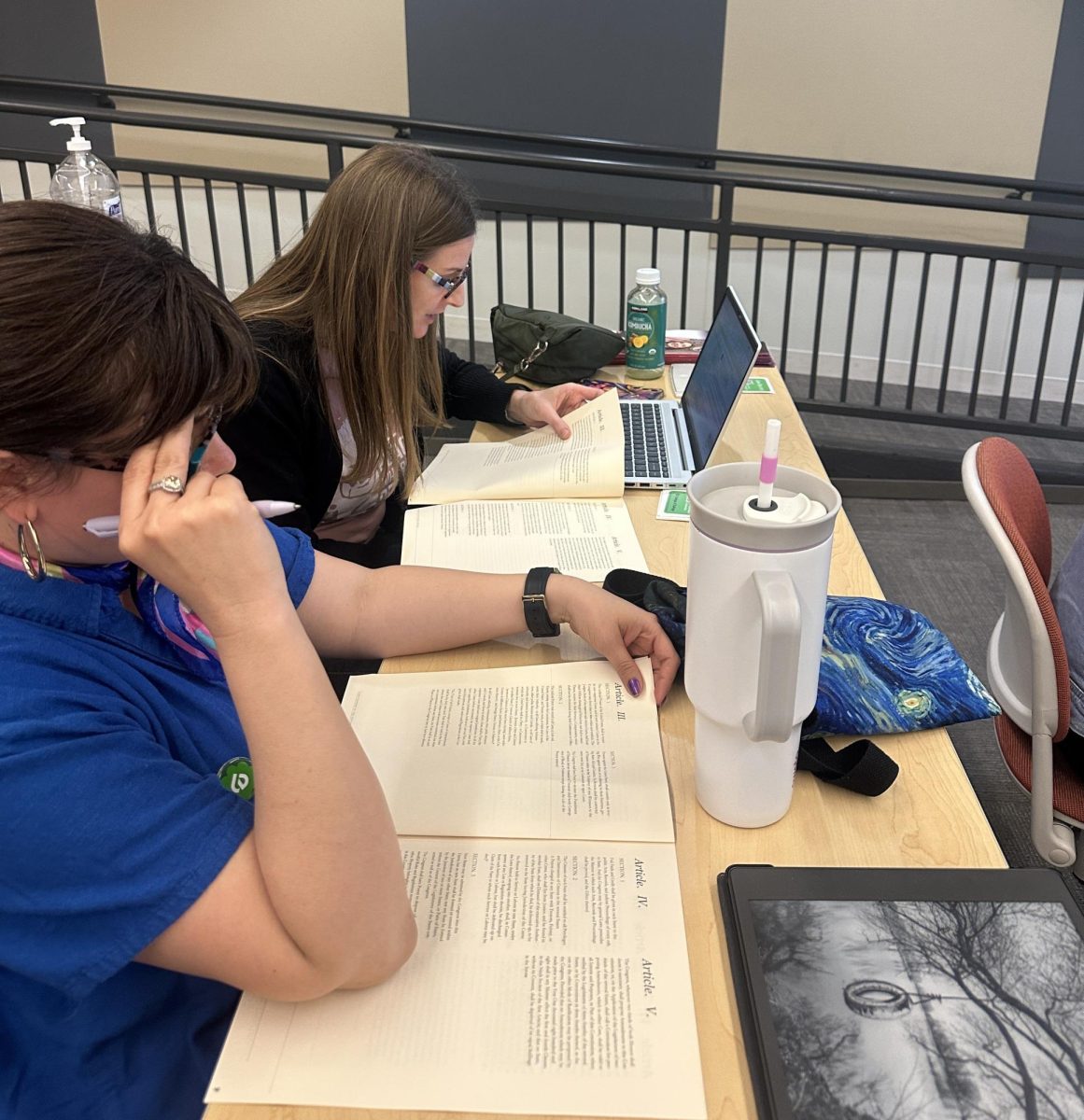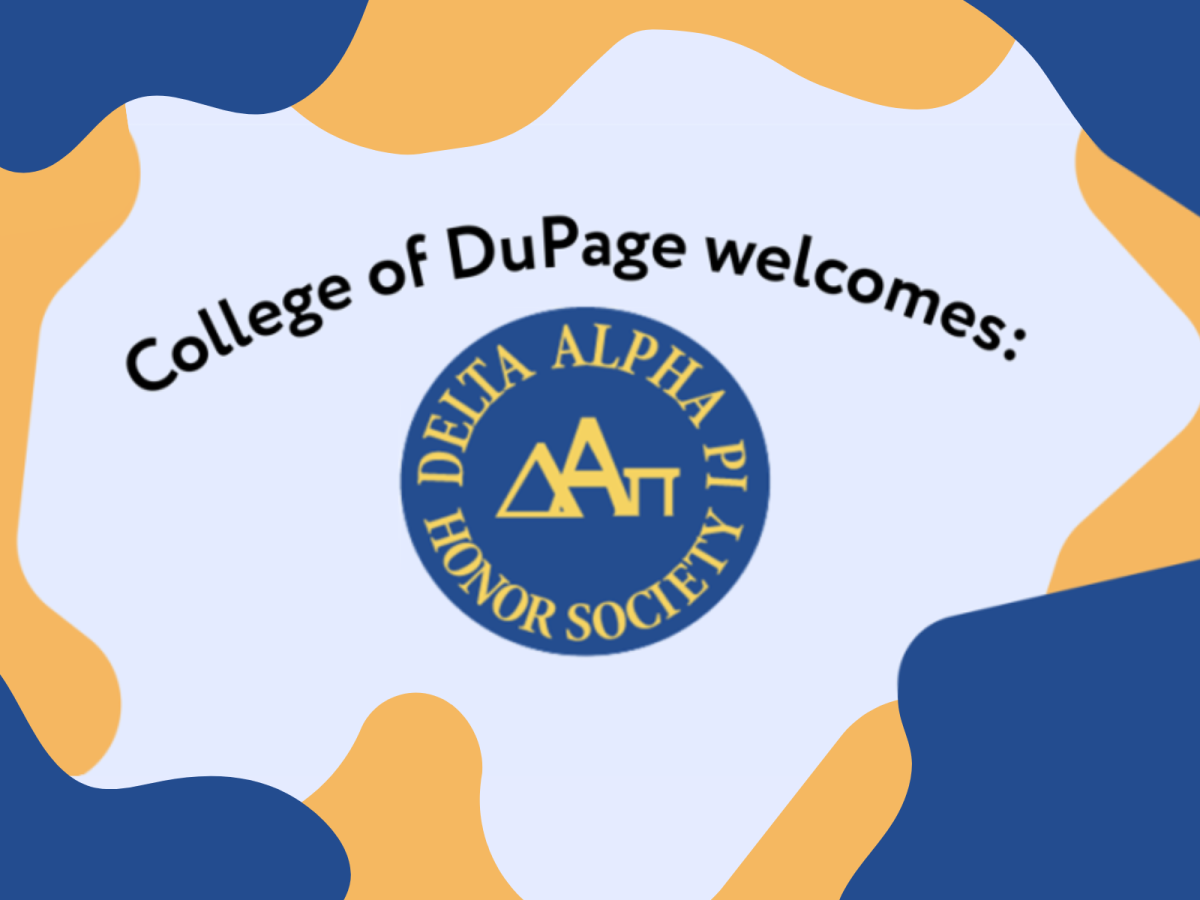Student Leadership Council (SLC) elections are coming up soon. On March 13 and 14, voting will be open for COD students to pick their new SLC officers and the next student trustee. Brokering a sustainable tuition increase, improving access to Open Education Resources, revitalizing the Peer Mental Health Support Group and creating a club funds pool and master calendar of events are some of the main goals candidates discussed.
This year features one of the largest numbers of candidates running, 12, for the six available SLC officer positions, as well as two candidates for the single Student Trustee, who will work with the administration and COD Board of Trustees.
Each student brings unique skill sets, campus involvement and innovative ideas to improve SLC. With such a large pool of candidates, campaigning has been especially intense. This is the first SLC campaign season in recent years to have candidates running as slates, as well as being recipients of student club endorsements. These unique ideas show the fervor each candidate has dedicated to campaigning to fulfill the roles and responsibilities they are passionate about.
One slate of candidates includes five students: Divine Nkanga, Ash Khandker, Ishil Chaudhary, Chris Barrientos and Sadaf Khan, who operate under the acronym D.A.I.C.S. The other slate includes: Angel Lim, Aahil Syed, Luv Vithani, Shahid Khatib, Anam Sultana and Carson Fenne. One candidate, Mahamadou Ndiaye, is not running on either slate.
These slates help candidates build a shared platform where they hope to complement each other’s skills and abilities. The candidates do not have to be elected together. Each candidate spent the campaign period formulating a slate, seeking endorsements from student clubs and passing out promo material about their platforms to students.
Issue One: Academic Support and Transfering
In a press release to the Courier, Ash Khandker, who serves as logistics coordinator of D.A.I.C.S., stated two main initiatives of the team.
“We will host educational events and activities to broaden knowledge about career paths, help students understand their respective industries and promote networking for students transitioning into their fields,” the press release said.
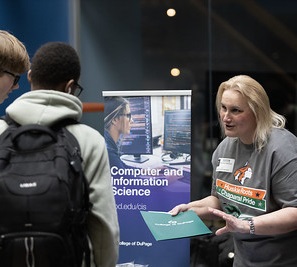
Chaudhary hopes to strengthen transfer options by having SLC officers directly work with the Counseling and Advising Department. He is part of the D.A.I.C.S. slate and a Computer and Information technology student who is running for both officer and Student Trustee positions.
“Advocating for more planned university student visits personalized for transfer students, having institutions which COD is not in contact with table on campus and signing a variety of transfer agreements should be priorities for transfer counselors, which the SLC has the capabilities to push for,” Chaudhary stated.
He explained students often end up taking courses that are not transferable outside COD, and if they are unsure about which college they will transfer to, this concern becomes more difficult. Chaudhary said these issues can be even more difficult for first-generation college students, including himself.
“As one who often had to figure things out on my own for academic planning, first-generation students should have the facilities upon applying to be connected with the right support to ensure that their interests are being aligned with a pathway that can get them to where they envision,” Chaudhary said. “They can know what courses to recommend to students so that their efforts in their studies isn’t demerited by credits that are unable to transfer.”
He said SLC can invite the general student body to share their concerns about transferring, and the SLC officers will convey a report on those issues to the Counseling and Advising Department.
Academic support resources is also a priority for officer candidate Mahamdou Ndiaye. As a first-generation student who immigrated from Senegal, he described how his struggles to adapt are useful experiences he can implement.
“Coming from Senegal, before I was very shy. I didn’t want to go to groups. I didn’t want to do group work. As you adapt in a country, you kind of change,” Ndiaye said. “Usually international students, especially with digital work, I think they’re afraid to go and ask questions in person. Maybe if they had one-v-one help, someone to talk to, more than going to a group. I want to be that person. My goal is, in the short term, to better communicate and make sure students are aware of the opportunities and support that are available to them.”
Issue Two: Fall 2024 Tuition Raise
Vithani also addressed concerns about the expected fall 2024 tuition raise which may be $149 per credit hour. He stated that tuition raises are unavoidable and delaying the current raise would just lead to an even steeper jump in the next few years.
“The focus could be on providing or developing ways for students to afford the tuition raise rather than fighting the raise altogether,” Vithani said. “Finding a solution for the cost of books and requirements for classes, which are very costly, would act like a cherry on top. I have been attending the [trustee] meetings and will continue attending them to understand the tuition raise better. One of my duties as an officer is to be informed and convey that information as it is without my perspective.”
Issue Three: Open Education Resources
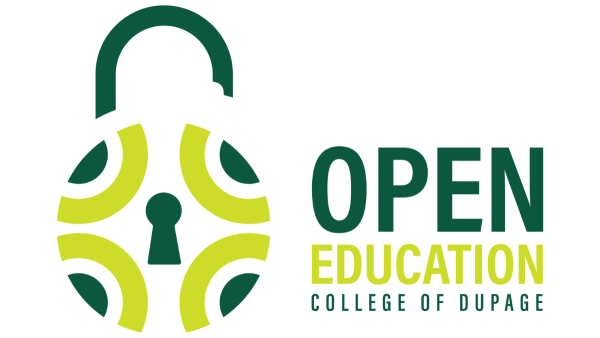
The importance of providing affordable resources to students despite higher tuition was echoed by candidate Ash Khandker, who has been an active member of SLC for the past year and is involved in the Open Education Resources steering committee.
“I will work with the COD OER steering committee to bring free education resources to more students and do outreach to inform the student body of all the wrap-around support available to the students for success,” Khandker said.
Sultana also added her insight into the importance of OER resources.
“OER is important as students come to COD for cheaper education and a lot of students are part-timers who work day and night just to pay off their tuition,” Sultana explained. “Having to pay an average of 300 plus for books adds on additional costs and stress to students. OER is a cost-effective way to ensure equitable access to education. As officers, we want to bring more representation within the completion college wide commitee about the importance of OER and how it can help students succeed in their academic journey.”
Issue Four: Student Club Improvement
Creating more academic workshops and networking events is also a priority for Nkanga, a software engineering student who is running for an officer position in the D.A.I.C.S. slate.
“My focus is on highlighting diverse career paths, including those in the arts, especially for students of color and other underrepresented groups,” Nkanga said. “These events will provide valuable opportunities for students to explore different professions and build essential skills, ensuring everyone, regardless of background can thrive. I strive to create inclusive spaces and advocate for opportunities for students of all backgrounds, particularly in STEM and art fields.”
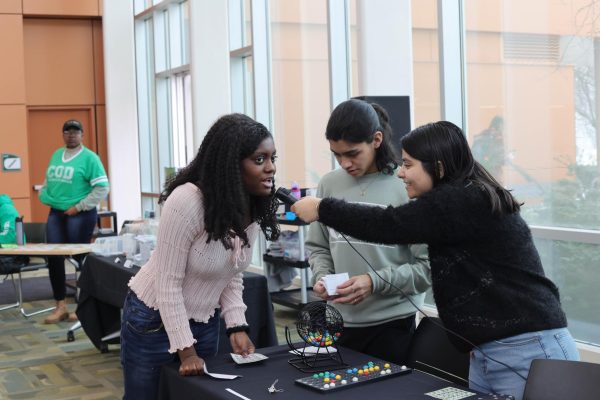
Nkanga recently created the Open Art Studio Club, which meets every other Friday in the MAC, and is also a member of the Computer Science Club, Black Student Alliance and Latinos Unidos. She described the importance of supporting clubs, as many clubs this semester have faced limited room availability due to construction and scheduling conflicts with other clubs. The D.A.I.C.S. team proposes solutions in their press release.
“We will recruit clubs to join a Master Calendar of events and advocate for a cooperation agreement between clubs on campus,” Nkanga stated. “This will allow more students to participate and benefit from the peer community. Furthermore, it’ll allow clubs to coordinate and support event planning and help connect subject matter experts from one club to another on a bartering system.”
The D.A.I.C.S candidates currently propose that every club has one keystone event and then two other events in cooperation with another club. They hope this will help both large and small clubs share event spaces and attract a larger pool of attendees.
Strengthening clubs is also a large priority for Biology student Anam Sultana, who is running for SLC Officer and Student Trustee. She is President of the UNICEF club, which is also a newer club on campus. She described hardships with recruiting members due to limited funding, social media issues and email scams from fake UNICEF members. As the UNICEF club began fundraising bake sales and hosting volunteer events, Sultana suggested that SLC could facilitate a club fund pool.
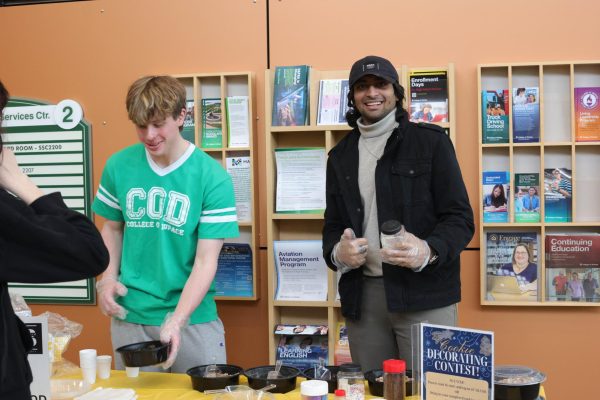
“It would be seed funding for new clubs, allowing them to cover the initial expenses such as marketing materials or equipment purchases for events and fundraisers,” Sultana suggested. “Helping them kickstart club activities by allocating resources toward hosting guest speakers or big events. A starting budget can also help clubs gain credibility and enhance the club’s reputation, facilitating collaboration with other campus organizations.”
These suggestions for strengthening clubs were echoed by Chaudhary, who referenced his experiences working on the Chat GPT AI project from the Computer Science Club and the Lunar Rover in the Engineering and Technologies Club. He described how STEM clubs would benefit from more departmental involvement to support clubs.
“The issue is that sometimes these clubs and organizations are on their own to gather necessary funds and find resources such as internship opportunities,” Chaudhary said. “A way the college can promote STEM student success is to arrange for STEM departments to be in direct contact with respective clubs and organizations which can bring the possibility of funding being managed by these departments. With the knowledge and outside sources that STEM department faculty have, which they are often willing to provide to students, it is an achievable goal that would satisfy all involved.”
Issue Five: Mental Health Peer Support Group

Another important program is the Peer Mental Health Support Project for students to help each other with mental health needs. The group’s vice president is Vithani, and two other candidates, Barrientos and Sultana, have also worked on the project. The group wrapped up phase one last fall by contacting other Illinois universities, researching their mental health programs and now plan to visit the schools and formulate COD’s own mental health group.
“Our following steps are visiting these schools, checking out their program, getting some insights, and designing a program best suitable for the College of DuPage,” Vithani said. “We have a task force that is working with us, consisting of COD employees. Re-establishing effective communication between the counseling department and the SLC is something I am evaluating. Refueling the Mental Health Committee with the purpose of tangible results alongside peers who are as motivated as myself. That being said, launching the PMHSP will always be one of my top priorities.”
Issue Six: SLC Budgeting
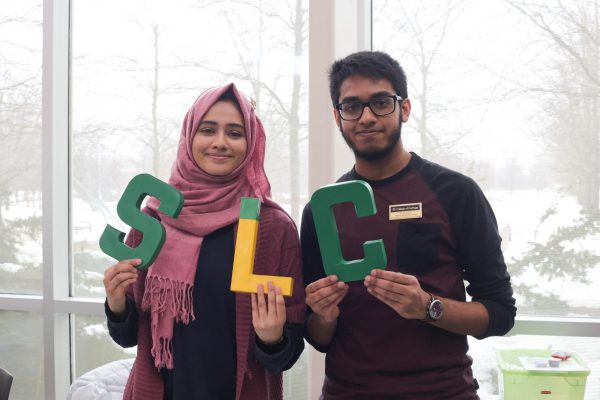
With club funding and academic support opportunities being two main concerns, officers also describe their plans to maintain successful budgeting practices in SLC. Luv Vithani, a business and finance student running for officer, described how his educational background and experience as a VITA Free Tax prep worker will help SLC deal with complex monetary issues.
“Being a finance major equips me to excel in budgeting, preparing proposals, calculating the balances, and conveying that information to the Council as well as to the students,” Vithani stated. “Though tax filing might not be on my to-do list at the SLC, the adaptability and attention to detail I’ve gained tools I carry into every financial challenge. that will lead to optimum utilization of resources and provide a personalized proposal for the committees and their goals.”
Barrientos of the D.A.I.C.S slate is also a finance student and described his qualifications to contribute to SLC’s leadership.
“With my experiences in logistics, team management and brilliant communication skills, I will ensure the clubs engage and unite for a common goal,” Barrientos stated. “Recently, I have held a temporary supervisor position leading a department of 15 workers where I exceeded daily production quotas by streamlining production and restructuring the team to bring down the total time of assembly. My experience is heavily relevant to an officer role as a lot of the duties and responsibilities I had helped me acquire the skills necessary for being a competent officer.”
Issue Seven: Student Feedback and Engagement
With so many new plans in the works from each candidate, they hope students will engage with SLC to share feedback and help with the formulation of the plans. Angelica Lim, who has been an SLC student representative for the past year and now running for officer, described her experience maximizing student engagement as a marketing team lead.
“We have experimented with various methods such as flyers, word of mouth, tabling, and social media, all of which have yielded some degree of success,” Lim stated. “By complementing tabling with social media story postings and distributing flyers, we have observed a growing trend in student engagement.”
Lim’s personal goal is to communicate with lesser-known clubs and programs and visit non-central buildings to reach students who aren’t in the BIC.
“Stepping out of my comfort zone, I have begun exploring different clubs and buildings, and have had the pleasure of meeting passionate individuals,” Lim said. “Their input is incredibly valuable to me, and I aim to utilize what I learn to better serve the SLC and help connect students to these clubs and organizations.
The number of votes has steadily increased through the years since the pandemic in 2021 when only 93 students voted for the officers. By 2023, 338 votes were tallied. This upward trend of attention and engagement in the elections encourages the candidates to do their best to represent the students voting for them as leaders.
Read more about the SLC elections in The Courier’s article about the 2024 Candidate Forum or the Student Leadership Council Election webpage. Keep an eye on your college email for instructions on how to vote on ChapLife on March 13 and 14.

